Deutschrock Live Radio Stations
Radio Stations
- - 0 N - Deutsch Rock on Radio
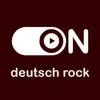
- 0nlineradio DEUTSCHROCK
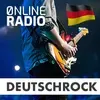
- 0nlineradio NEUE DEUTSCHE WELLE
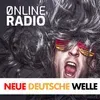
- AGF Radio
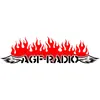
- Antenne Niedersachsen DeutschAntenne Niedersachsen Deutsch
- Best Of Rock.FM Deutsch Rock
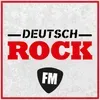
- DivingRadio (laut.fm/diving)
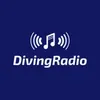
- DrGnu - Deutsch Rock
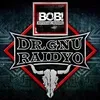
- laut.fm Deutsches-Rock-Pop-Radio
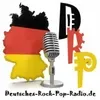
- laut.fm Krautland

- Notenkiste - deutsche TexteNotenkiste - deutsche Texte
- R.SA Rockzirkus
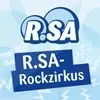
- Radio Best BuddyRadio Best Buddy
- Radio Bob
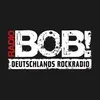
- Radio Regenbogen Deutsch Pop

- RadioBOB Deutsch Rock (64 kbps AAC)

- ROCKANTENNE Deutschrock (64 kbps AAC)

- RPR1. Liedergut

- The ArtistThe Artist
Choose a Genre
Deutschrock: The Heartbeat of German Rock Music
Emerging in the 1970s, Deutschrock (literally "German rock") is a genre that encapsulates the vibrant and powerful spirit of rock music performed in the German language. Known for its gritty guitar riffs, passionate vocals, and lyrical focus on German culture, history, and social issues, Deutschrock has carved out a unique space in the world of rock music. Over the years, it has become synonymous with a sense of national pride, personal expression, and political commentary, all wrapped in the high-energy sound of rock.
The Rise of Deutschrock
Deutschrock began in Germany during the 1970s, when rock music from English-speaking countries began to make waves across Europe. German musicians, inspired by the powerful sounds of hard rock, punk, and early heavy metal, started experimenting with these styles while making the bold decision to sing in their native language. This shift gave birth to a genre that combined all the intensity of rock with distinctly German themes, setting the stage for a music movement that would resonate deeply with local audiences.
In its early years, Deutschrock was heavily influenced by hard rock and punk rock, drawing inspiration from global icons like Led Zeppelin, The Clash, and Iggy Pop, but also retaining a unique edge by incorporating German cultural references and social issues into the music. The genre quickly became a vehicle for self-expression, tackling topics like political unrest, social alienation, and national identity, making it an important part of Germany’s music scene.
The Sound of Deutschrock
The sound of Deutschrock is as diverse as the country’s music scene itself. The genre embraces a wide array of rock styles, ranging from the aggressive riffs of heavy metal to the raw energy of punk rock, and even the more melodic strains of pop rock and acoustic ballads.
Hard rock and heavy metal are central to the genre’s identity, often featuring powerful guitar riffs, driving drum rhythms, and vocals that resonate with intensity and emotion. Bands like Scorpions, Rammstein, and Accept helped popularize Deutschrock, introducing hard-hitting, energetic anthems that celebrated both personal and social themes.
Punk rock, with its rebellious spirit, also played a major role in the development of Deutschrock. Bands such as Die Toten Hosen and Die Ärzte infused the genre with punk’s anti-establishment attitude, combining it with German cultural references and experiences. Their music often features raw, aggressive instrumentation and lyrics that express dissatisfaction with the status quo.
Deutsch-Pop, a more mainstream sub-genre, incorporates catchy choruses, radio-friendly melodies, and an accessible pop sound. Although lighter than the hard rock and punk influences, Deutsch-Pop still retains a strong connection to German identity, offering upbeat and sing-along songs that resonate with a broader audience.
The sub-genre of Neue Deutsche Härte (New German Hardness) represents the fusion of heavy metal with industrial music, utilizing heavy guitar riffs, mechanical drum beats, and aggressive vocal delivery. Pioneered by bands like Rammstein, Neue Deutsche Härte is both theatrical and intense, with lyrics that delve into topics ranging from dark political commentary to more personal reflections.
Sub-genres Within Deutschrock
The genre encompasses a variety of sub-genres, each offering its own flavor and unique perspective:
Neue Deutsche Härte (New German Hardness): Combining the intensity of heavy metal with the rhythmic pulse of industrial music, this sub-genre is known for its hard-hitting sound and often confrontational lyrics. The theatricality and aggressive energy of bands like Rammstein have become iconic worldwide, making Neue Deutsche Härte a global representative of Deutschrock.
Deutsch-Pop (German Pop): On the lighter side of the spectrum, Deutsch-Pop offers more accessible, melodic songs with a radio-friendly appeal. This sub-genre focuses on catchy tunes, sing-along choruses, and personal or universal themes, capturing the mainstream appeal of pop music while keeping its German cultural roots intact.
Punk Rock: Punk rock in the German language focuses on anti-authoritarian and rebellious themes, with bands like Die Ärzte and Die Toten Hosen reflecting the socio-political landscape of Germany in their music. Fast, aggressive, and often playful, punk rock within Deutschrock carries a distinct DIY ethos and an unfiltered approach to addressing social and political issues.
The Role of Deutschrock Radio Stations
Deutschrock radio stations serve as a vital platform for the genre, offering fans access to a wide array of rock music that spans across various sub-genres. These stations are crucial for introducing new talent, as well as showcasing the rich history of Deutschrock’s evolution.
DJs on Deutschrock stations are typically well-versed in the genre’s history, often sharing insightful trivia, facts about the artists, and commentary on the broader cultural impact of the music. In addition to playing the classic anthems of the genre, these stations often feature live performances, interviews with musicians, and behind-the-scenes insights that deepen listeners’ understanding of the music they love.
Moreover, Deutschrock radio stations often promote local and independent artists, providing opportunities for emerging talent to connect with a broader audience. They also keep listeners informed about upcoming concerts, festivals, and cultural events, offering a platform for fans to stay connected to the vibrant German rock scene.
The Appeal of Deutschrock
What makes Deutschrock so special is its ability to reflect the socio-political landscape of Germany while remaining deeply personal. Whether addressing issues like social injustice, cultural pride, or the struggles of everyday life, Deutschrock often serves as a voice for those who feel marginalized or disconnected from the mainstream. The genre’s fusion of intense rock music and deeply rooted cultural themes creates an emotionally charged listening experience, resonating with a wide range of listeners who share a connection to German identity.
For many fans, Deutschrock is more than just music—it’s a way to engage with their cultural heritage, reflect on the nation’s history, and connect with a like-minded community. The passionate lyrics, powerful guitar riffs, and diverse range of sub-genres make it a genre that appeals to those who appreciate authenticity, rebellion, and emotional depth in their music.
Conclusion
Deutschrock is a dynamic and diverse genre that celebrates both the power of rock music and the cultural identity of Germany. From the hard-hitting sounds of heavy metal and punk rock to the more melodic tones of Deutsch-Pop, the genre covers a broad spectrum while remaining rooted in the country’s rich cultural history. Radio stations dedicated to Deutschrock provide an exciting, immersive experience for listeners, offering a chance to connect with the genre’s past, present, and future.
Whether you’re a fan of the aggressive intensity of Neue Deutsche Härte or the more laid-back sounds of Deutsch-Pop, Deutschrock continues to inspire and unite listeners, making it an integral part of Germany’s musical landscape.
Emerging in the 1970s, Deutschrock (literally "German rock") is a genre that encapsulates the vibrant and powerful spirit of rock music performed in the German language. Known for its gritty guitar riffs, passionate vocals, and lyrical focus on German culture, history, and social issues, Deutschrock has carved out a unique space in the world of rock music. Over the years, it has become synonymous with a sense of national pride, personal expression, and political commentary, all wrapped in the high-energy sound of rock.
The Rise of Deutschrock
Deutschrock began in Germany during the 1970s, when rock music from English-speaking countries began to make waves across Europe. German musicians, inspired by the powerful sounds of hard rock, punk, and early heavy metal, started experimenting with these styles while making the bold decision to sing in their native language. This shift gave birth to a genre that combined all the intensity of rock with distinctly German themes, setting the stage for a music movement that would resonate deeply with local audiences.
In its early years, Deutschrock was heavily influenced by hard rock and punk rock, drawing inspiration from global icons like Led Zeppelin, The Clash, and Iggy Pop, but also retaining a unique edge by incorporating German cultural references and social issues into the music. The genre quickly became a vehicle for self-expression, tackling topics like political unrest, social alienation, and national identity, making it an important part of Germany’s music scene.
The Sound of Deutschrock
The sound of Deutschrock is as diverse as the country’s music scene itself. The genre embraces a wide array of rock styles, ranging from the aggressive riffs of heavy metal to the raw energy of punk rock, and even the more melodic strains of pop rock and acoustic ballads.
Hard rock and heavy metal are central to the genre’s identity, often featuring powerful guitar riffs, driving drum rhythms, and vocals that resonate with intensity and emotion. Bands like Scorpions, Rammstein, and Accept helped popularize Deutschrock, introducing hard-hitting, energetic anthems that celebrated both personal and social themes.
Punk rock, with its rebellious spirit, also played a major role in the development of Deutschrock. Bands such as Die Toten Hosen and Die Ärzte infused the genre with punk’s anti-establishment attitude, combining it with German cultural references and experiences. Their music often features raw, aggressive instrumentation and lyrics that express dissatisfaction with the status quo.
Deutsch-Pop, a more mainstream sub-genre, incorporates catchy choruses, radio-friendly melodies, and an accessible pop sound. Although lighter than the hard rock and punk influences, Deutsch-Pop still retains a strong connection to German identity, offering upbeat and sing-along songs that resonate with a broader audience.
The sub-genre of Neue Deutsche Härte (New German Hardness) represents the fusion of heavy metal with industrial music, utilizing heavy guitar riffs, mechanical drum beats, and aggressive vocal delivery. Pioneered by bands like Rammstein, Neue Deutsche Härte is both theatrical and intense, with lyrics that delve into topics ranging from dark political commentary to more personal reflections.
Sub-genres Within Deutschrock
The genre encompasses a variety of sub-genres, each offering its own flavor and unique perspective:
Neue Deutsche Härte (New German Hardness): Combining the intensity of heavy metal with the rhythmic pulse of industrial music, this sub-genre is known for its hard-hitting sound and often confrontational lyrics. The theatricality and aggressive energy of bands like Rammstein have become iconic worldwide, making Neue Deutsche Härte a global representative of Deutschrock.
Deutsch-Pop (German Pop): On the lighter side of the spectrum, Deutsch-Pop offers more accessible, melodic songs with a radio-friendly appeal. This sub-genre focuses on catchy tunes, sing-along choruses, and personal or universal themes, capturing the mainstream appeal of pop music while keeping its German cultural roots intact.
Punk Rock: Punk rock in the German language focuses on anti-authoritarian and rebellious themes, with bands like Die Ärzte and Die Toten Hosen reflecting the socio-political landscape of Germany in their music. Fast, aggressive, and often playful, punk rock within Deutschrock carries a distinct DIY ethos and an unfiltered approach to addressing social and political issues.
The Role of Deutschrock Radio Stations
Deutschrock radio stations serve as a vital platform for the genre, offering fans access to a wide array of rock music that spans across various sub-genres. These stations are crucial for introducing new talent, as well as showcasing the rich history of Deutschrock’s evolution.
DJs on Deutschrock stations are typically well-versed in the genre’s history, often sharing insightful trivia, facts about the artists, and commentary on the broader cultural impact of the music. In addition to playing the classic anthems of the genre, these stations often feature live performances, interviews with musicians, and behind-the-scenes insights that deepen listeners’ understanding of the music they love.
Moreover, Deutschrock radio stations often promote local and independent artists, providing opportunities for emerging talent to connect with a broader audience. They also keep listeners informed about upcoming concerts, festivals, and cultural events, offering a platform for fans to stay connected to the vibrant German rock scene.
The Appeal of Deutschrock
What makes Deutschrock so special is its ability to reflect the socio-political landscape of Germany while remaining deeply personal. Whether addressing issues like social injustice, cultural pride, or the struggles of everyday life, Deutschrock often serves as a voice for those who feel marginalized or disconnected from the mainstream. The genre’s fusion of intense rock music and deeply rooted cultural themes creates an emotionally charged listening experience, resonating with a wide range of listeners who share a connection to German identity.
For many fans, Deutschrock is more than just music—it’s a way to engage with their cultural heritage, reflect on the nation’s history, and connect with a like-minded community. The passionate lyrics, powerful guitar riffs, and diverse range of sub-genres make it a genre that appeals to those who appreciate authenticity, rebellion, and emotional depth in their music.
Conclusion
Deutschrock is a dynamic and diverse genre that celebrates both the power of rock music and the cultural identity of Germany. From the hard-hitting sounds of heavy metal and punk rock to the more melodic tones of Deutsch-Pop, the genre covers a broad spectrum while remaining rooted in the country’s rich cultural history. Radio stations dedicated to Deutschrock provide an exciting, immersive experience for listeners, offering a chance to connect with the genre’s past, present, and future.
Whether you’re a fan of the aggressive intensity of Neue Deutsche Härte or the more laid-back sounds of Deutsch-Pop, Deutschrock continues to inspire and unite listeners, making it an integral part of Germany’s musical landscape.